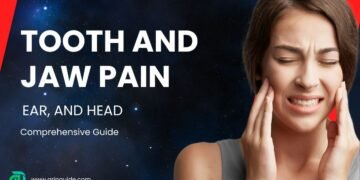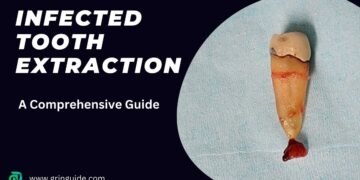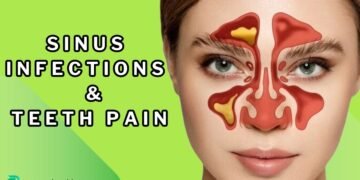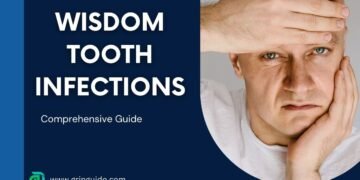Table of Contents
Picture this: you’re enjoying a lovely dinner with family or friends when suddenly, a sharp pain shoots through your mouth causing you to wince in discomfort. You realize you have a toothache, and unfortunately, it’s come at the worst possible time. Toothaches can be incredibly painful and disruptive, but there are steps you can take to get some relief until you can see a dentist.
Effective Emergency Toothache Relief Methods
It is important to note that while these home remedies can provide temporary relief, they do not address the underlying cause of the toothache. Therefore, it is crucial to schedule an appointment with a dentist as soon as possible to diagnose and treat the issue. Ignoring a toothache can lead to further complications and potentially more invasive treatments in the future.
In addition to seeking professional dental care, practicing good oral hygiene is essential for preventing toothaches and maintaining overall oral health. Brush your teeth twice a day with a fluoride toothpaste, floss daily, use interdental brush and visit your dentist regularly for check-ups and cleanings.
Here are some emergency toothache relief tips that you can try while waiting to see a dentist:
1. Rinse with Saltwater
One of the simplest and most effective ways to emergency toothache relief is to rinse your mouth with warm saltwater. Saltwater can help reduce inflammation and kill bacteria that may be causing the toothache.
To make a saltwater rinse:
- dissolve half a teaspoon of salt in eight ounces of warm water.
- Swish the solution around in your mouth for 30 seconds before spitting it out.
- Repeat this process several times a day for relief.
2. Apply a Cold Compress
If you are experiencing toothache pain accompanied by swelling, applying a cold compress to the affected area can provide relief. The cold temperature can help numb the area and reduce inflammation.
- Wrap a bag of ice or a cold pack in a thin cloth and apply it to the cheek near the painful tooth for 15 minutes.
- Take a break for 15 minutes and then reapply if necessary.
- Repeat this process as needed to alleviate the pain and swelling.
3. Over-the-Counter Pain Relievers
When confronted with a sudden and severe toothache, over-the-counter pain relief options can offer immediate respite. These medications are readily accessible, cost-effective, and can be an essential part of your emergency toothache relief strategy. Among the most commonly used analgesics are ibuprofen and acetaminophen, both of which are effective in alleviating dental pain.
Ibuprofen
Ibuprofen, a nonsteroidal anti-inflammatory drug (NSAID), is particularly effective in emergency toothache relief. Its anti-inflammatory properties help reduce swelling and alleviate pain. It is crucial, however, to follow the recommended dosage instructions to avoid potential side effects such as gastrointestinal distress. For most adults, the typical dose is 200-400 mg every 4-6 hours, not exceeding 1200 mg per day unless directed by a healthcare professional.
Acetaminophen
Acetaminophen, also known as paracetamol, is another over-the-counter option for emergency toothache relief. While it does not possess anti-inflammatory properties, it is effective in reducing pain and lowering fever. It is gentler on the stomach compared to NSAIDs, making it a suitable alternative for individuals with gastrointestinal sensitivities. The standard dosage for adults is 500-1000 mg every 4-6 hours, with a maximum daily limit of 4000 mg to avoid liver damage.
Topical Anesthetics
In addition to oral analgesics, topical anesthetics like benzocaine gels can provide targeted relief for toothache pain. These gels work by numbing the affected area, offering swift and localized pain relief. Benzocaine is available in various concentrations, typically ranging from 10% to 20%. It is essential to apply the gel directly to the painful area, avoiding excessive use to prevent irritation or adverse reactions. Always follow the product’s instructions for safe application.
Over-the-counter pain relief options are invaluable for managing toothache emergencies. By understanding the appropriate use of ibuprofen, acetaminophen, and topical anesthetics, you can effectively mitigate pain while seeking further dental care.
Follow the instructions on the packaging for the correct dosage and frequency. However, it is important to note that these medications provide temporary relief and should not be used as a substitute for professional dental care.
4. Garlic
Garlic, known for its pungent aroma and distinct flavor, has been used for centuries not only in culinary applications but also for its medicinal properties. This versatile herb is a natural remedy that can provide emergency toothache relief. One of the reasons garlic is effective in alleviating toothache is due to its antibacterial properties. These properties help fight against the bacteria that cause tooth infections, reducing inflammation and promoting healing.
When using garlic for toothache relief, it is important to ensure that you are using fresh garlic cloves. To prepare the remedy:
- take a garlic clove and crush it to create a paste.
- Applying the garlic paste directly to the affected tooth can help provide immediate relief from the throbbing pain.
- The active compound in garlic, called allicin, is released when the clove is crushed, and it acts as a natural analgesic.
- After applying the garlic paste, it is recommended to leave it in place for a few minutes to allow its medicinal properties to penetrate the affected area.
- During this time, the antibacterial properties of garlic work to combat the infection, reducing swelling and pain.
- To further enhance the effectiveness of the remedy, rinsing your mouth with warm saltwater afterward can help cleanse the area and promote healing.
It is important to note that while garlic can provide temporary relief, it is not a substitute for professional dental care. Toothaches can be a symptom of underlying dental issues that require the attention of a dentist. If the pain persists or worsens, it is advisable to seek professional dental advice to address the root cause of the problem.
Overall, garlic is a readily available and natural remedy that can offer temporary relief from toothache pain. Its antibacterial properties, when applied directly to the affected tooth, can help fight infection and reduce inflammation. However, it is crucial to remember that garlic should be used as a complementary treatment and not as a substitute for professional dental care.
5. Clove Oil

Clove oil has been used for centuries as a natural remedy as emergency toothache relief. It contains a compound called eugenol, which has analgesic and antibacterial properties. Eugenol acts as a local anesthetic, numbing the area and providing temporary relief from toothache pain. Additionally, it has antimicrobial properties that help fight against the bacteria causing the infection.
When using clove oil for toothache relief, it is important to ensure that you are using pure and high-quality oil. Diluting the clove oil with a carrier oil like olive oil or coconut oil can also help reduce the risk of irritation.
To apply the clove oil:
- soak a cotton ball in the oil and gently apply it to the affected tooth and surrounding gums.
- Gently massaging the area can help the oil penetrate deeper and provide more effective relief.
It is worth noting that while clove oil can provide temporary relief from toothache pain, it is not a substitute for professional dental care. Toothaches can be a sign of underlying dental issues such as cavities, gum disease, or tooth infections. It is important to consult a dentist to identify and address the root cause of the toothache.
Furthermore, it is essential to exercise caution when using clove oil. Swallowing clove oil can cause stomach upset and other digestive issues. Therefore, it is crucial to avoid ingesting the oil and to spit it out after use. If you experience any adverse reactions or if the pain persists, it is advisable to discontinue use and consult a healthcare professional.
In conclusion, clove oil can be a natural and effective remedy for toothache pain relief. Its analgesic and antibacterial properties make it a popular choice for those seeking temporary relief from toothaches. However, it is important to remember that it is not a substitute for professional dental care. If you are experiencing toothache pain, it is best to consult a dentist to identify and address the underlying cause of the pain.
6. Use a Toothache Gel or Ointment
There are over-the-counter toothache gels and ointments available that can provide temporary relief. These products often contain numbing agents such as benzocaine or lidocaine, which can help alleviate toothache pain. Follow the instructions on the packaging for proper application and dosage. It is important to note that these products only provide temporary relief and should not be used as a long-term solution.
7. Avoid Trigger Foods and Drinks
Some foods and drinks can exacerbate toothache pain, especially if the tooth is sensitive. Avoiding these trigger foods and drinks can help prevent further discomfort.
Examples of trigger foods and drinks include:
- hot or cold beverages.
- acidic foods and drinks.
- sugary foods and drinks.
- hard or crunchy foods.
Stick to soft, Lukewarm foods and drinks until you can receive proper dental care.
8. Keep the Area Clean
Maintaining good oral hygiene is essential, even when you have a toothache. Gently brush your teeth and floss to keep the affected area clean. Be cautious not to put excessive pressure on the painful tooth while brushing.
Rinse your mouth with an antibacterial mouthwash to help kill bacteria and reduce inflammation. Keeping the area clean can aid in preventing further complications and promote faster healing.
9. Seek Professional Dental Care
While these emergency toothache relief methods can provide temporary relief, it is crucial to seek professional dental care as soon as possible. A toothache is often a sign of an underlying dental issue that requires treatment. Ignoring the problem or relying solely on home remedies can lead to further complications and more severe pain in the long run. Schedule an appointment with your dentist to address the root cause of the toothache and receive appropriate treatment.
Remember, emergency toothache relief methods are temporary solutions and should not replace professional dental care. It is important to consult with a dentist to identify and treat the underlying cause of the toothache. By taking swift action and seeking timely dental care, you can find lasting relief from toothache pain and ensure the health of your teeth and gums.
When you visit your dentist, they will conduct a thorough examination of your teeth and gums to determine the cause of your toothache. They may take dental x-rays to get a better look at the affected area. Once the underlying issue is identified, your dentist will recommend the appropriate treatment plan.
The treatment for a toothache will depend on the specific cause. If the toothache is caused by tooth decay, your dentist may recommend a dental filling or a root canal procedure. In cases where the tooth is severely damaged or infected, extraction may be necessary. Your dentist will discuss the options with you and help you make an informed decision.
In addition to treating the underlying cause of the toothache, your dentist may also provide immediate pain relief during your visit. They may prescribe pain medication or apply a numbing gel to alleviate discomfort. Your dentist will also provide instructions on how to care for your teeth and gums at home to prevent further issues.
Regular dental check-ups and cleanings are essential for maintaining good oral health and preventing toothaches. Your dentist can identify and address any potential problems before they become painful emergencies. They will also provide guidance on proper oral hygiene practices and offer preventive treatments, such as dental sealants or fluoride treatments, to protect your teeth from decay.
Managing Toothache Pain in Children
Toothaches in children can be particularly distressing, not only for the child but also for parents who often feel helpless in alleviating their child’s discomfort. When it comes to emergency toothache relief for children, it’s crucial to approach the situation with a combination of effective home remedies and professional guidance. Identifying the underlying cause of the toothache is essential, as it allows for the appropriate treatment and prevents further complications.
If your child is experiencing a toothache, the first step is to gently clean the area around the affected tooth. Use a soft-bristled toothbrush and warm water to remove any food particles or debris. Rinsing the mouth with a saline solution can also help reduce inflammation and provide temporary relief. Over-the-counter pain relievers, such as acetaminophen or ibuprofen, can be administered according to the child’s age and weight. These medications can help manage the pain until a dental professional can be consulted.
Applying a cold compress to the outside of the cheek near the painful area can also be an effective method for reducing swelling and numbing the pain. Ensure the compress is wrapped in a cloth to avoid direct contact with the skin, which can cause frostbite. Clove oil, known for its analgesic properties, can be used as a natural remedy. Dabbing a small amount of clove oil onto a cotton ball and applying it to the affected tooth can provide soothing relief.
While these home remedies can offer temporary emergency toothache relief, it is important to consult a pediatric dentist as soon as possible. Persistent toothache in children may indicate underlying issues such as cavities, dental abscesses, or a cracked tooth, which require professional treatment. Early intervention by a pediatric dentist ensures the proper diagnosis and treatment of the issue, preventing potential complications and promoting the child’s overall dental health.
Causes of Emergency Toothaches: Understanding the Pain
Certainly! Let’s delve into the causes of emergency toothaches and understand the pain associated with them.
- Dental Decay (Cavities): One of the most common causes of toothache is dental decay or cavities. When bacteria break down sugars in the mouth, they produce acids that erode tooth enamel. This leads to cavities, which can expose the sensitive inner layers of the tooth, causing pain.
- Gum Infections (Gingivitis and Periodontitis): Inflammation of the gums due to bacterial infection can cause tooth pain. Gingivitis is an early stage of gum disease, while periodontitis is more severe and affects the supporting structures around the tooth.
- Dental Abscess: An abscess is a pocket of pus that forms at the root of a tooth or in the surrounding gum tissue. It occurs due to bacterial infection. Symptoms include severe throbbing pain, swelling, and sometimes a pimple-like bump on the gum.
- Cracked or Fractured Teeth: A cracked or fractured tooth can expose the sensitive pulp inside. Chewing or exposure to temperature changes can trigger intense pain. Trauma, biting on hard objects, or grinding teeth can cause cracks.
- Impacted Wisdom Teeth: Wisdom teeth (third molars) often don’t have enough space to erupt properly. When they become impacted (stuck), they can cause pain, swelling, and pressure in the back of the mouth.
- Sinus Infections: Sometimes, pain in the upper teeth can be related to sinus infections. The sinuses are located close to the upper molars, and inflammation can radiate pain to the teeth.
- Bruxism (Teeth Grinding): Grinding or clenching teeth, especially during sleep, can lead to tooth sensitivity and pain. Over time, it can wear down tooth enamel.
- Trauma or Injury: Accidental trauma, such as a fall or impact, can damage teeth, gums, or jawbones, causing immediate pain.
- Orthodontic Adjustments: After orthodontic procedures (braces or aligners), teeth may shift, leading to soreness and discomfort.
- Eruption of New Teeth: Babies and young children experience pain when new teeth erupt. This is normal and usually temporary.
Remember, if you’re experiencing severe toothache, it’s essential to seek professional dental care promptly. These tips provide temporary relief, but a dentist can diagnose the underlying issue and provide appropriate treatment.
Preventing Future Toothaches: Tips for Maintaining Oral Health
Maintaining good oral health is essential for preventing toothaches and other dental problems. Here are some tips to help you keep your teeth and gums healthy:
- Brush Regularly: Brush your teeth at least twice a day with fluoride toothpaste, use a soft-bristled toothbrush and replace it every 3-4 months.
- Floss Daily: Flossing removes food particles and plaque from between teeth where a toothbrush can’t reach, It helps prevent gum disease and tooth decay.
- Use Mouthwash: An antibacterial mouthwash can help reduce bacteria that cause plaque and gum disease, Rinse once or twice a day for the best results.
- Eat a Balanced Diet: Limit sugary snacks and drinks, which can contribute to tooth decay, Include plenty of fruits, vegetables, and water in your diet.
- Regular Dental Checkups: Visit your dentist for cleanings and checkups at least twice a year, Regular visits can help catch problems early when they’re easier to treat.
- Avoid Tobacco Products: Smoking or using tobacco can increase the risk of gum disease and oral cancer, quitting tobacco can improve your overall oral health.
- Wear a Mouthguard: If you play sports or grind your teeth at night, consider wearing a mouthguard to protect your teeth from injury and damage.
- Stay Hydrated: Drinking water helps keep your mouth clean and prevents dry mouth, which can increase the risk of tooth decay.
- Limit Alcohol Consumption: Excessive alcohol can dry out the mouth and contribute to tooth decay and gum disease.
- Chew Sugar-Free Gum: Chewing sugar-free gum after meals can help neutralize acids and promote saliva production, which protects against decay.
By following these tips, you can reduce the risk of toothaches and improve your oral health. Remember, a proactive approach to dental care is the best way to ensure a healthy smile!
Long-Term Solutions and Dental Treatments
While immediate emergency toothache relief is crucial for alleviating pain, addressing the root cause of the discomfort often requires long-term solutions and professional dental treatments. Identifying and treating the underlying issue can prevent recurring pain and further complications.
One of the most common long-term solutions for toothache is the use of dental fillings. When tooth decay or cavities are the culprits behind the pain, a dentist can remove the decayed portion of the tooth and fill the cavity with a suitable material, such as composite resin, amalgam, or gold. This procedure not only restores the tooth’s integrity but also prevents further decay and infection.
For more severe cases involving infection or significant decay that reaches the tooth’s pulp, a root canal treatment may be necessary. During a root canal, the dentist removes the infected or damaged pulp, cleans and disinfects the inner chambers of the tooth, and then seals it to prevent future infections. This procedure can save a tooth that might otherwise need to be extracted, providing a long-lasting solution to toothache.
In instances where the tooth is beyond repair, extraction might be the only viable option. This procedure involves removing the affected tooth entirely, which can effectively eliminate the source of pain and prevent the spread of infection to surrounding teeth and gums. Post-extraction, options such as dental implants, bridges, or dentures can be considered to restore functionality and aesthetics.
Additionally, preventive dental care plays a pivotal role in long-term toothache relief. Regular dental check-ups, professional cleanings, and maintaining good oral hygiene habits can help identify potential issues early on and mitigate the risk of developing painful conditions. Dentists may also recommend fluoride treatments or dental sealants for added protection against decay.
Summary
In conclusion, while dealing with a toothache can be an unpleasant experience, there are steps you can take at home as emergency toothache relief. Rinsing with warm saltwater, applying a cold compress, using clove oil, and taking over-the-counter pain relievers can help alleviate dental pain. However, it is important to remember that these remedies are not a substitute for professional dental care. Schedule an appointment with a dentist to address the underlying cause of the toothache and prevent further complications.
FAQs
-
What are the options for emergency toothache relief?
– Rinse your mouth with warm water.
– Use a saltwater rinse or hydrogen peroxide rinse.
– Dental floss can help remove food particles or plaque wedged between teeth.
– Apply a cold compress to the outside of your cheek if the toothache is due to trauma.
– Over-the-counter pain relievers (such as ibuprofen or acetaminophen) can provide relief. -
When to see a dentist?
– If the toothache persists for more than a day or two.
– If you experience pain when biting or have abnormally red gums.
– Seek immediate medical attention if you have fever, trouble breathing or swallowing, swelling, or foul-tasting discharge. -
What is the best Emergency Toothache Relief?
– Acetaminophen (Tylenol), ibuprofen (Advil), or aspirin can provide short-term relief.
– Medicated gels or drops containing ingredients like benzocaine can numb the area.
– Swish warm saltwater in your mouth to reduce pain and inflammation.
– Cloves contain eugenol, which numbs the skin and can be applied to the painful tooth. -
What should I avoid when I have a toothache?
– hot or cold beverages.
– acidic foods and drinks.
– sugary foods and drinks.
– hard or crunchy foods.











